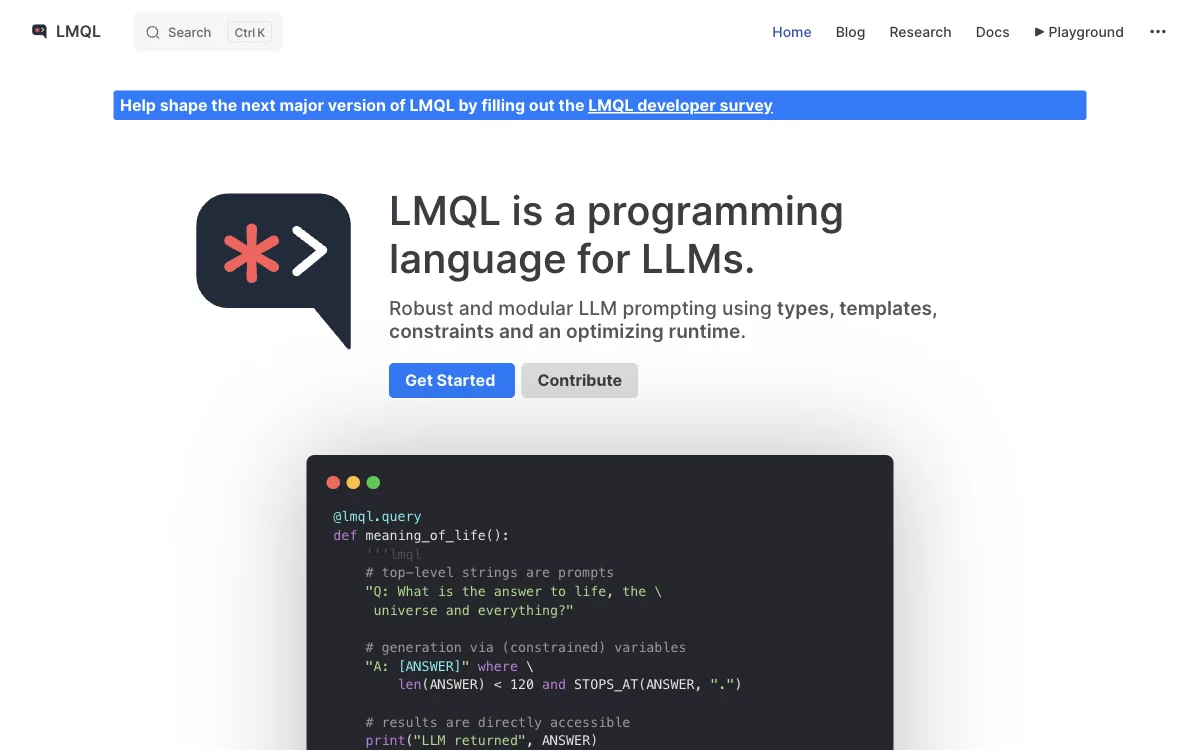LMQL stands as a pioneering programming language tailored for the interaction with Large Language Models (LLMs). It introduces a robust and modular approach to LLM prompting, leveraging types, templates, constraints, and an optimizing runtime to enhance the efficiency and effectiveness of language model interactions. This innovative language allows developers to construct and generate prompts through expressive Python control flow and string interpolation, offering a seamless integration of programming logic with natural language processing tasks.
One of the standout features of LMQL is its support for nested queries, which brings procedural programming to the realm of prompting. This capability enables the modularization of local instructions and the reuse of prompt components, significantly improving the scalability and maintainability of LLM-based applications. Furthermore, LMQL's execution trace feature provides transparency into the model's reasoning process, allowing developers to understand and debug the interactions between the model and the prompts.
LMQL's versatility is further demonstrated by its compatibility across various backends, including llama.cpp, OpenAI, and Hugging Face Transformers. This cross-backend support ensures that developers can easily switch between different LLM providers without the need for extensive code modifications, making LMQL a highly portable and flexible tool for LLM interaction.
In addition to its technical capabilities, LMQL is designed with the developer experience in mind. It offers a straightforward syntax for defining prompts and constraints, making it accessible to both novice and experienced programmers. The language's focus on types and regex ensures that outputs are not only relevant but also formatted correctly, reducing the need for post-processing and enhancing the overall quality of the generated content.
Created by the SRI Lab at ETH Zurich and its contributors, LMQL is at the forefront of LLM programming languages, offering a comprehensive suite of features that cater to the evolving needs of AI developers. Whether it's for building chatbots, generating content, or conducting research, LMQL provides the tools necessary to harness the full potential of large language models in a structured and efficient manner.
